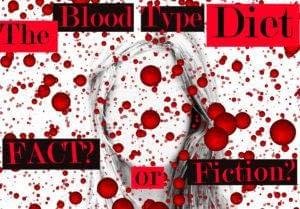
Today’s post on the Blood Type Diet was inspired by a What When Wine Diet reader email:
Hi! I just started listening to your book and it’s great! I’m wondering your thoughts on blood type and paleo. I am a Type A and have always done well eating little meat. I want to eat exclusively Paleo but am worried that my body will not do well with a lot of meat. Are you a Type O or do you know if O’s do better on this diet? Thanks so much! -Sacha in San Diego
Before getting into the nitty gritty, I’d like to clarify something about the Paleo diet. While my particular Paleo fancy is rather carnivorous in spirit, featuring fulfilled dreams of lust-worthy veal shanks and ribeyes, Paleo actually does not automatically necessitate a meat-heavy diet. “Paleo” can be done Vegetarian, Pescetarian, Vegan, or I suppose even Fruitarian style. (Yey labels!) In other words, you can totally be Paleo and munch on enough fruit and veggies to fill Noah’s ark. The goal of Paleo is simply to eliminate foods which create inflammation and degenerative disease in the body. While such food problems are often due to an omnipresent lack of genetic adaptation (oh hey grains!), everyone’s body likely functions better on some foods more than others, in a unique snowflake type way. You might feel best on blueberry banana nut smoothies, while your friend partakes in ginger-infused bone broth.
Which brings us back to the Blood Type Diet – basically the crème de la crème of specifically personalized diets based on inflammatory potential identification, in which every single food is most definitely and irrevocably beneficial, neutral, or detrimental for your health. Oh my! Let’s get into it, shall we?
WHAT ARE BLOOD TYPES?
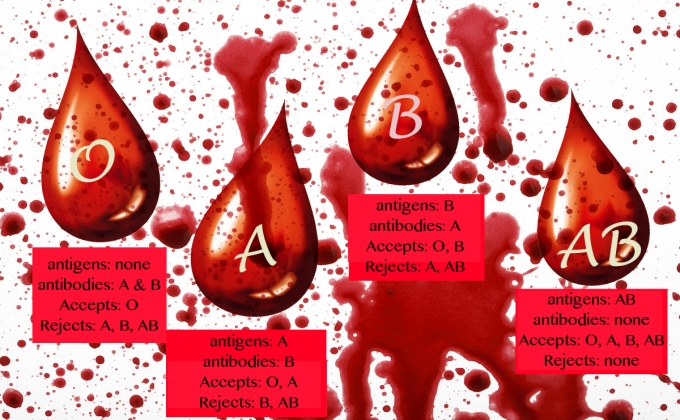
The various blood type categories refer to the different antigens (and consequently, corresponding antibodies) in the bloodstream. Antigens are “surface markers” made of sugars or proteins found on cells throughout the body. They’re kinda like name tags. They also do cool things, like provide structural integrity to cells, help transport substances through cell membranes, and help cells stick to stuff.
But let’s go back to the name tag thing. Since antigens are found on cells everywhere, not just in blood cells, and not just in human cells, they’re great identifiers for the body’s immune system, which is kind of like the police. The body’s immune system welcomes antigens it has determined to be part of its system, and freaks out about antigens it has marked as foreign. (You can’t sit here!) A foreign antigen popping up in the bloodstream, would be like a Republican decked out in Trump gear, showing up at a Hillary convention, or vice versa. Bad idea.
Antigens are the reason some blood types can accept certain blood types, and not others. While it gets a bit complicated, and any blood transfusion carry risks, the basic idea is that Type O blood contains no A or B antigens which might set off a person’s immune system, making it the universal donor. But since Type O contains antibodies to A and B antigens, it can only accept Type O blood. On the flipside, type AB blood can accept any blood type because it recognizes both the A and B antigens as family, but it can only give to other ABs, since it contains both A and B antigens. In between, Type A can accept Type A and O, and give to A and AB, and Type B can accept Type B and O, and give to B and AB.
In case you’re wondering, Type O is most common blood type (an estimated 45% of people in the US), followed by A, then B, and lastly AB (an estimated 4% in the US.)
THE BLOOD TYPE DIET BASIC PREMISE
Having historically encountered a fair share of dismissive remarks in my Paleo-sphere wanderings, including by my personal role models, I admittedly hadn’t seriously considered the Blood Type Diet concept in the past. Time to change that! For this post, I chose to focus on the Blood Type Diet Bible: Peter J. D’Adamo’s Eat Right For Your Type, published 2 decades ago in 1996.
Eat Right For Your Type postulates that various lectins abundant in foods can potentially 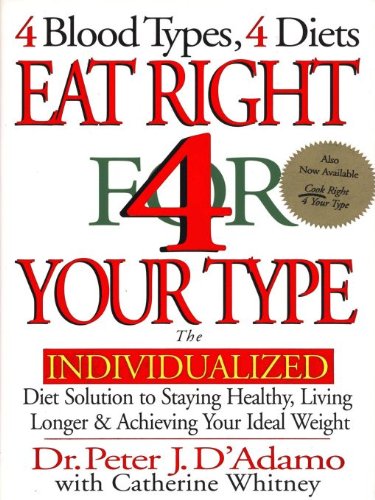 “agglutinate” (cause clumping) in a person’s blood, depending on blood type, causing a myriad of problems. Lectins are basically “sticky” proteins found primarily in plant foods, which attach to sugar cells. While lectins can do a variety of things, a primary nefarious purpose involves a defense system for plants, which can’t exactly run away from predators. Lectins can bind to the sugary membranes of unwanted invaders (think bacteria and fungi) and inflict major damage. Sneaky plants! In fact, Lectins are a primary reason grains are so downright nasty. Particularly nasty lectins for humans include prolamins, like gluten, and agglutinins, like soy lectins and wheat germ agglutinin. (Although gluten also contains wheat germ agglutinin – double whammy!)
“agglutinate” (cause clumping) in a person’s blood, depending on blood type, causing a myriad of problems. Lectins are basically “sticky” proteins found primarily in plant foods, which attach to sugar cells. While lectins can do a variety of things, a primary nefarious purpose involves a defense system for plants, which can’t exactly run away from predators. Lectins can bind to the sugary membranes of unwanted invaders (think bacteria and fungi) and inflict major damage. Sneaky plants! In fact, Lectins are a primary reason grains are so downright nasty. Particularly nasty lectins for humans include prolamins, like gluten, and agglutinins, like soy lectins and wheat germ agglutinin. (Although gluten also contains wheat germ agglutinin – double whammy!)
Because our intestinal tract just happens to be coated in sugary membranes, when we eat grains and other plants rich in lectins (think legumes and nightshades), the lectins can bind to our intestinal tract and wreck havoc, leading to inflammation, holes in our digestive system, autoimmunity, and the like. (By the way, lectins are a reason peanuts happen to be so allergenic, as peanut lectins are very tough critters and easily permeate the intestinal tract to interact with the bloodstream.)
So yes, I’m totally on board with the potential digestive distress caused by lectins.
The Blood Type Diet takes things a smidge further. It proposes that when lectins enter the bloodstream, they can have a positive or negative effect on the individual based on the antigens present (A or B), which themselves correlate to the historical dietary consumption of different populations during the evolution of blood types. Some blood types and lectins go together just fine, while others spell immediate trouble. For incompatible lectins/ antigens, the lectins agglutinate (clump together) in the bloodstream, as well as attach to cells throughout the body, increasing inflammation and encouraging disease.
BLOOD TYPE DIET PROFILES
Here’s the basic Blood Type breakdown, according to Eat Right For Your Type (emphasis that this is according to that book.) For specific foods, check out Dr. D’Adamo’s comprehensive “Blood Type Diet/ Nutrient Value Encyclopedia.”
TYPE O – The Hunter: Supposedly the oldest blood type, Type O blood contains both 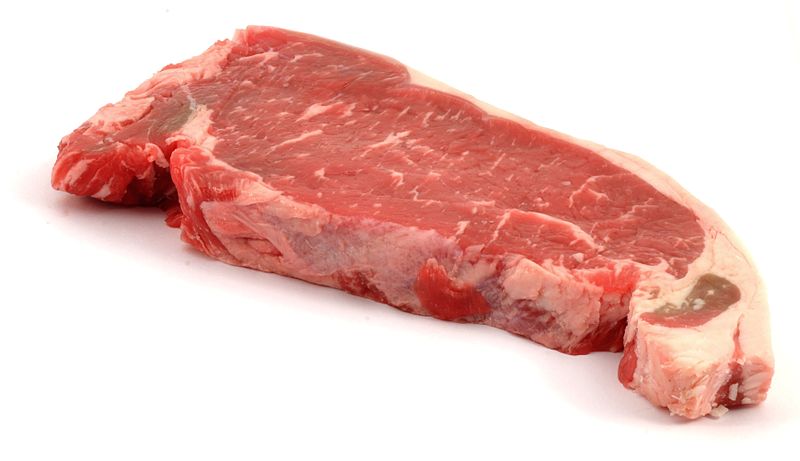 A and B antibodies, and features an acidic digestive system. Like ancient humans on a carnivorous diet, those with Type O blood have fast metabolisms which thrive on animal-based protein and fat, and fewer plants: the lectins of which can easily agglutinate Type O blood. The Type O diet is rather Paleo-esque in nature, featuring meat, fish, chicken, some fruits and veggies, and avoiding many grains, legumes, and dairy products. Type Os are supposedly more susceptible to food allergies and environmental irritants.
A and B antibodies, and features an acidic digestive system. Like ancient humans on a carnivorous diet, those with Type O blood have fast metabolisms which thrive on animal-based protein and fat, and fewer plants: the lectins of which can easily agglutinate Type O blood. The Type O diet is rather Paleo-esque in nature, featuring meat, fish, chicken, some fruits and veggies, and avoiding many grains, legumes, and dairy products. Type Os are supposedly more susceptible to food allergies and environmental irritants.
TYPE A – The Agrarian: Type A blood supposedly developed in a time of less hunting and more agriculture-based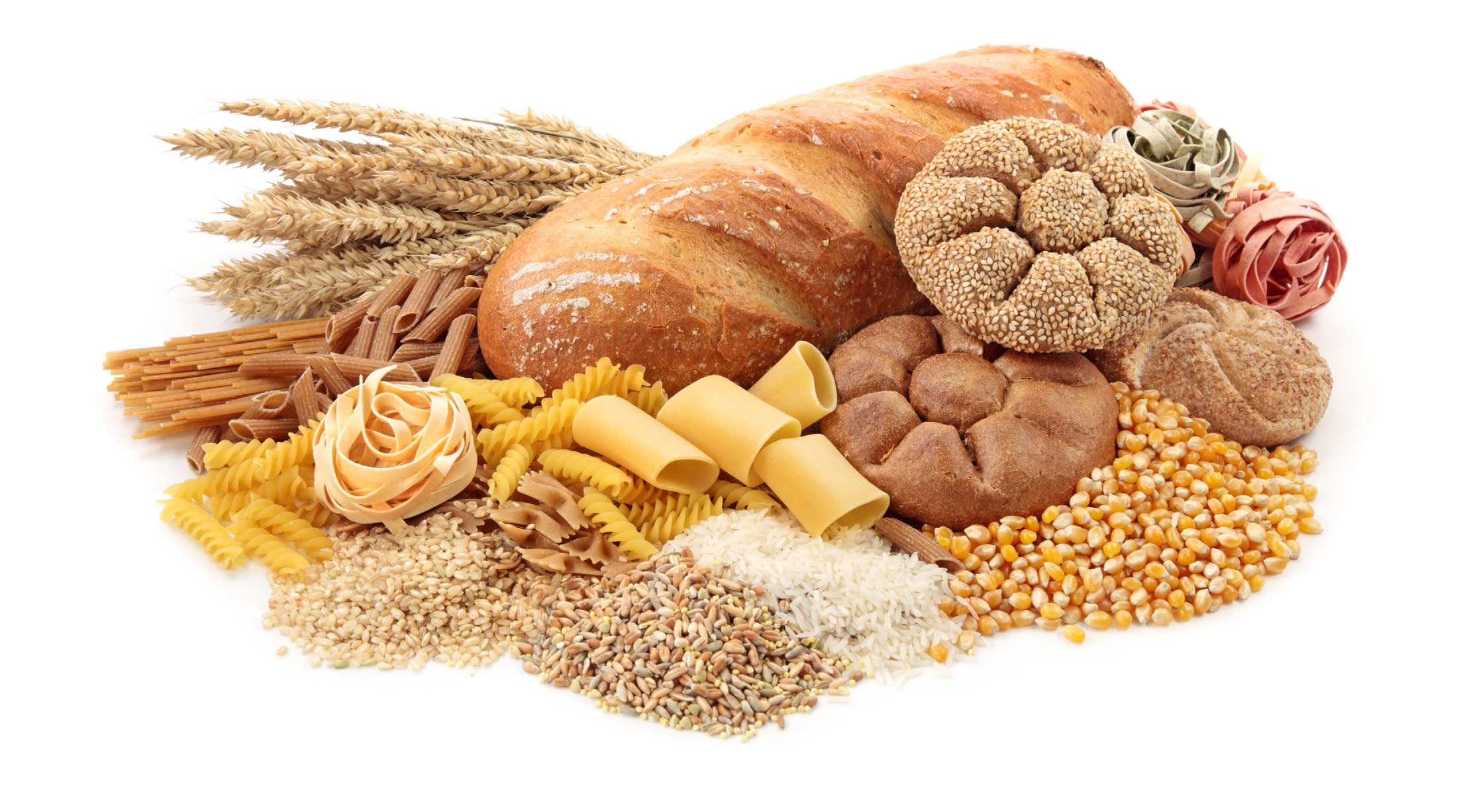 food substrates. With less stomach acid, Type As thrive on a Vegetarian diet, and favor more grains and carbohydrates. They
food substrates. With less stomach acid, Type As thrive on a Vegetarian diet, and favor more grains and carbohydrates. They
should avoid red meats. Unlike Type Os, Type As have a sensitive digestive system, but a more tolerant immune system.
TYPE B – The Nomad: Type Bs supposedly evolved in the Hima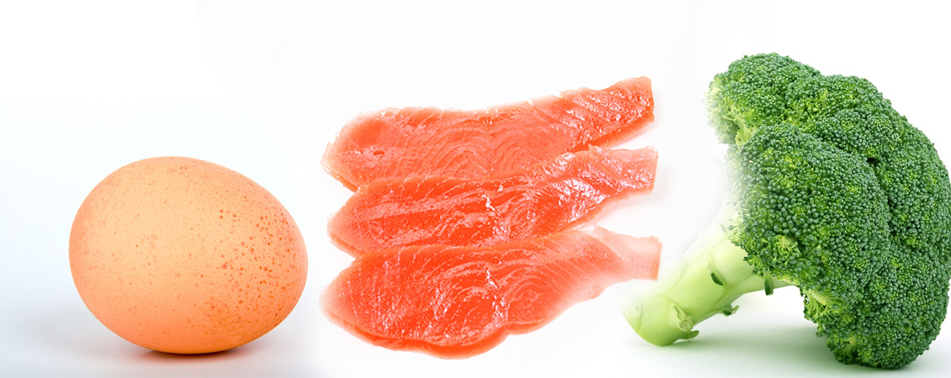 layan highlands, on a diet of herded rather than hunted animals, featuring a diet rich in meat and dairy. Dr. D’Adamo equates Type B with “Balance,” maintaining they are the most flexible on the animal/vegetable spectrum, although Type Bs should notably avoid chicken, as well as corn, wheat, buckwheat, lentils, tomatoes, peanuts and sesame seeds.
layan highlands, on a diet of herded rather than hunted animals, featuring a diet rich in meat and dairy. Dr. D’Adamo equates Type B with “Balance,” maintaining they are the most flexible on the animal/vegetable spectrum, although Type Bs should notably avoid chicken, as well as corn, wheat, buckwheat, lentils, tomatoes, peanuts and sesame seeds.
 TYPE AB – The Enigma: A rare blood type created from the fusion of Type A and Type B, Type AB blood displays fluctuating elements of both. Type ABs have lower stomach acid, yet still harbor a fancy for meats, which can cause problems. Dr D’Adamo recommends tofu, fish, dairy, and green veggies for Type ABs, with an exclusion of smoked meats, kidney beans, corn, beef and chicken. He also notes Type ABs should be very careful with food combining, and, for example, should not mix starches and proteins in a given meal.
TYPE AB – The Enigma: A rare blood type created from the fusion of Type A and Type B, Type AB blood displays fluctuating elements of both. Type ABs have lower stomach acid, yet still harbor a fancy for meats, which can cause problems. Dr D’Adamo recommends tofu, fish, dairy, and green veggies for Type ABs, with an exclusion of smoked meats, kidney beans, corn, beef and chicken. He also notes Type ABs should be very careful with food combining, and, for example, should not mix starches and proteins in a given meal.
THE STOMACH ACID CONNECTION
A key component of the Blood Type Diet, is the correlation between blood type and stomach acid. Dr. D’Adamo maintains that, while an individual blood type does not necessarily cause a certain amount of stomach acid, the two seem correlated, due to some genetic link. In general, type Os seem to feature more acidic stomachs, while type As are less acidic.
This does make me wonder if stomach acidity may be a primary reason the Blood Type Diet may work well in some people. After all, if there’s one thing I believe, it’s that the root of our health lies in the gut! Meats tend to digest well in acidic environments, while the vegetable side of thing tends to be more alkaline. So if Type Os, for example, have more acidic digestive systems, then a previously Vegetarian Type O who switches to a Type O diet rich in lean meats, may indeed begin to thrive. The opposite could be true for Type A: a carnivorous Type A who switches to a more plant-based approach, may reach a new level of vitality, thanks to better digestion.
BLOOD TYPE SCIENTIFIC STUDIES
BLOOD TYPE AND DISEASE
On the one hand, studies often find links between certain blood types and various disease. In correlational studies, Type O seems more resilient to some cancers, such as pancreatic and gastric cancer. (One study found gastric cancer risk increased by a whopping 55% in non-Type O blood!) On the other hand, non-Type Os correlate to a decreased risk of non-melanoma skin cancer.
Type Os also experience significantly less cardiovascular disease. A 2012 review of two studies accounting for 89,500 adults over 20 years, found that Type Os experienced the least amount of coronary heart disease, while Type ABs experienced the most (23% more!) Type A blood also correlates to higher bad (LDL) cholesterol levels.
As for lifespan, Type O shines again. A study of 50,000 individuals over 7 years, found Type A, B, and AB were 9% more likely to die during the story than Type Os. On the flipside, Type O blood has been correlated to decreased fertility.
Researchers have postulated a multitude of theories for why blood type seems to affect disease rates. A 2015 study suggests that the increased mortality rates in non-Type O blood may be due to blood group genes affecting biochemistry, levels of von Willebrand factor (involved in blood coagulation), or levels of factor VIII (a blood clotting protein.) In the spirit of the Blood Type Diet, antigens also may be key, by affecting cell signaling, and levels of inflammatory proteins in the bloodstream. As noted in a 2010 study on blood type and skin cancer, blood type factors influencing disease could include “inflammation, immunosurveillance for malignant cells, intercellular adhesion, and membrane signaling.”
BLOOD TYPE, DIET, AND DISEASE
While numerous studies have found statistically significant and mostly consistent correlations between blood types and disease, the literature on blood types, disease, and diet is a bit sparse. More like desolate.

A 2013 systemic review which leafed through 1415 potential studies, found zero studies which supported the Blood Type Diet. As it noted, “No studies that showed the health effects of ABO blood type diets were identified,” and, “No evidence currently exists to validate the purported health benefits of blood type diets.” Let me clarify, however, that the researchers found no studies which fit the criteria to even analyze the diet in the first place, rather than found studies which didn’t support it. People like to take reviews like this and proclaim, “Blood Type Diet Debunked!” in bold letters, when really, the review just showed the Blood Type Diet hasn’t been studied. As it says, “The validity of the scientific basis for any of the blood type diets is beyond the scope of this systematic review.” That said, it is a bit disconcerting that no studies are to be found, especially since Dr. D’Adamo specifically attests in Eat Right For Your Type, that blood type diet trials were in progress. So what happened to them? Umm….
Perhaps the problem in testing the Blood Type Diet, is the many factors involved: four different diets for four different types of people. Where does one begin? Do you just test each blood type with the aligned diet? Do you test certain foods for each blood type?
But wait! In 2014, a study finally did analyze the Blood Type Diet/disease connection, following 1,455 adults in their twenties over a one month period. The researchers provided individual charts for positive and negative foods based on blood type, and then took those who best adhered as representative of that blood type group. The results? The Type A diet correlated to lowered cholesterol, triglycerides, blood pressure, insulin, waist circumference, and BMI. The AB diet correlated to lowered cholesterol, triglycerides, blood pressure, and insulin. The Type O correlated to lowered triglycerides. Type B did zilch.
So yey! The blood type diets seem to have some good effects, right? Not so fast…
Matching the blood type diets in the study to the individuals’ blood type, didn’t change things. Basically, certain blood type diets worked, but it was completely independent of blood type. As the study concludes, “Adherence to certain ‘Blood-Type’ diets is associated with favorable effects on some cardiometabolic risk factors, but these associations were independent of an individual’s ABO genotype, so the findings do not support the ‘Blood-Type’ diet hypothesis.”
That said, the format and limitations of the study render it slightly problematic as a definite means of testing the Blood Type Diet in the first place. This was my first thought when reading the study. And as Dr. D’Adamo points out, “The PLOS study effectively modeled only 13.7% of the total food values provided in Eat Right For Your Type; was performed on healthy volunteers for a only a short duration, and included numerous egregious errors in food valuations. That the Blood Type Diet theory has not been subjected to a rigorous scientific study is not argued. However, the methods used in the ‘debunking study’ in PLOS study by El-Sohemy, et al. and the errors that inevitably resulted with their conclusions, prove worse than no study at all.” You can read more of his response here.
MY THOUGHTS
The problem with the Blood Type Diet isn’t so much conflicting evidence, so much as a lack of evidence. While a lack of evidence does not mandate falsehood, it is a bit troubling for a system as nuanced and specific as Dr. D’Adamo’s system, in which almost every single food on this planet is identified as harmful, neutral, or beneficial, for not only four, but eight different categories of people. (Dr A’Adamo takes into account the “secretor” and “non-secretor” versions of the four blood types factor, which involves levels of blood type antigens secreted in bodily fluids like sweat and saliva.)
In a way, the blood type diet is sort of like the opposite of the common carb/fat/protein macronutrient diet war, which rests on thousands of both supportive and conflicting studies, yet draws very general conclusions. (Avoid all fat! Avoid all carbs! etc.) In contrast, the Blood Type Diet has basically no studies behind it, yet draws very specific conclusions. For example, tomatoes negatively flocculate serum proteins in Blood Type A and B Secretors; are neutral for Blood Type A and B non-secretors, Type AB secretors, and Type O secretors and non secretors; and yet are actually “cancer superbeneficial” in type AB non secretors. Say what?
Of course, I am a fan of N=1 self experimentation and personal testimonies, so perhaps Dr. D’Adamo has seen these foods react consistently in his patients. But really, how many patients could possibly eat enough pigeon that he can conclude it’s neutral for Type A, harmful for type AB, and beneficial for type O Non-secretors? Like really.
So here’s an overview of my personal problems with the Blood Type Diet:
BLOOD TYPE DIET PROBLEMS
- As just discussed, the blood type diet contains a borderline insane amount of information regarding almost every specific food’s effect on each blood type. I’m just not sure where the scientific basis is for this.
- In his book, Dr. D’Adamo references forthcoming studies which never materialized. Why? Were they inconclusive? Contrary to his beliefs?
- Dr. D’Adamo makes many specific unsupported assertions in regards to the acid/alkaline action of various foods. (For example: Wheat is alkaline for type Os, but acidic for type As.) Again, it’s just a ton of super specific information which has little scientific grounding behind it.
- Some of the blood type diet plans encourage foods which bear detrimental effects for most people (if not everyone), regardless of blood type, such as processed soy (oh hey tofu!) and many grains like wheat. I find it hard to believe any human can truly thrive on grains. Furthermore, studies show some lectins react with ALL blood types.
- Some of the blood type diet plans advocate foods which may be potentially problematic for some people, regardless of blood type, such as dairy and nightshades.
- Dr. D’Adamo makes a suspect claim that some foods readily become energy for some people, but fat stores for others. For example, meat is used for energy in Type Os, but is stored as fat in Type As. This does not take into account a myriad of other factors, such as metabolism, insulin levels, gut microbiomes, overall food intake, etc. Does meat really “automatically” become energy in some people, and fat in others? I doubt it.
- Dr. D’Adamo places a lot of emphasis on lectin activity in meat, though the lectin activity of meat does not tend to be as detrimental in the human body as plant lectin activity.
- As a last note, there are some questions of historical accuracy. Though Dr D’Adamo identifies Type O blood as the oldest, it has been suggested Type A blood may in fact be the genesis.
BLOOD TYPE DIET BENEFITS
With all the above said, there’s some stuff to like in the Blood Type Diet, even if parts of it are hocus pocus.
- The Blood Type Diet encourages a mindset in which food profoundly affects one’s state of health and disease, harboring the potential to be individually beneficial, neutral, or detrimental, based on evolutionary adaptions and personal genetics. This is a foundational principal of the Paleo diet.
- The Blood Type Diet pays careful attention to the toxic effect of lectins, which are often a major source of digestive distress, inflammation, and health issues in general.
- Despite its inclusion of grains, soy, and some other nasties, Dr. D’Adamo does favor a whole foods approach. In fact, I wouldn’t be surprised if the Blood Type Diet works well for some people, simply by encouraging a forgoing of processed goodies in favor of more whole foods. After all, the protocol explores the lectin activity of whole foods only, and you can’t look up a Twinkie on his food calculator.
- Dr. D’Adamo has, in my opinion, a nice view on supplements: supportive but not over-reliant. As he says, “The role of supplements – be they vitamins, minerals, or herbs- is to add the nutrients that are lacking in your diet, and to add extra protection where you need it.” I couldn’t agree more.
- I really appreciate Dr. D’Adamo’s view on Western medicine and drugs: “Today’s physicians overprescribe medications, and we overuse them. It’s a serious problem. Yet unlike other naturopaths who reject the entire modern pharmacopeia, I believe we must take a more reasoned and flexible point of view. Most medical preparations are designed to be effective on a broad range of the population, and should be used to treat the most severe and potentially dangerous contains. But let us also keep medication in perspective: All drugs are poisons. The good drugs that man has discovered over the centuries are selective poisons. Many others are broader, less selective poisons.”
MY BLOOD TYPE
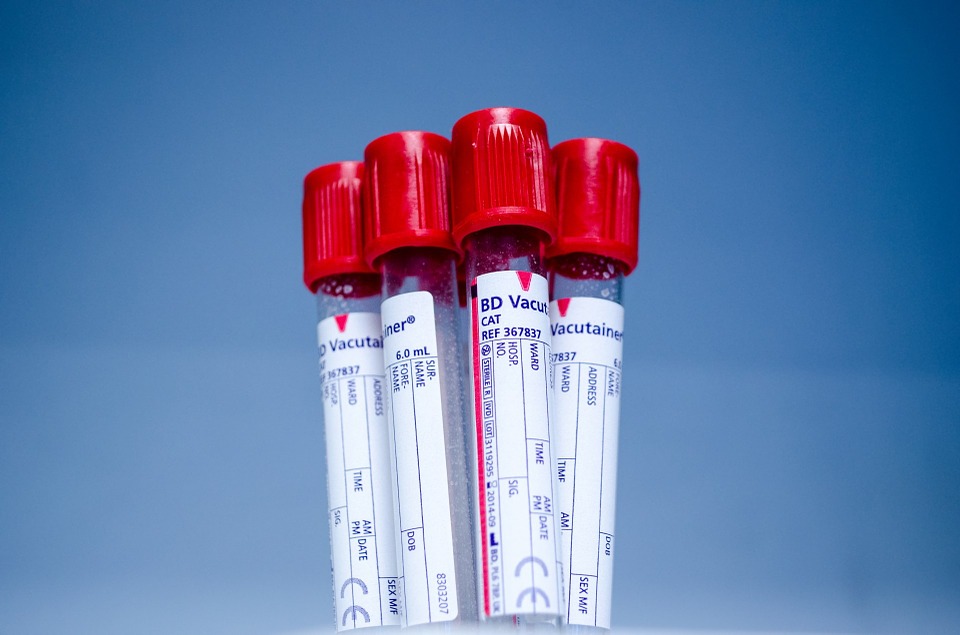 When I first sat down to read Eat Right For Your Type, I did so with no idea of what my actual blood type was, figuring this would minimize bias. The more I read, the more I aligned with the prescribed Blood Type O diet. I also eerily identified with most of the Type O characteristics, including propensity towards certain activity levels, personality, health conditions, etc. Why yes I did thrive on bouts of brief, intense physical activity. Why yes I was overwhelmingly susceptible to environmental allergies. Why yes I did struggle with some bouts of hypothyroidism.
When I first sat down to read Eat Right For Your Type, I did so with no idea of what my actual blood type was, figuring this would minimize bias. The more I read, the more I aligned with the prescribed Blood Type O diet. I also eerily identified with most of the Type O characteristics, including propensity towards certain activity levels, personality, health conditions, etc. Why yes I did thrive on bouts of brief, intense physical activity. Why yes I was overwhelmingly susceptible to environmental allergies. Why yes I did struggle with some bouts of hypothyroidism.
After finishing the book, I marched into a walk-in lab, offered up my arm in sacrifice, and waited with baited breath for the results. They came in an unassuming email 24 hours later.
Type O.
On the one hand, I almost wanted to be not Type O. That would make evaluating the whole blood type thing easier. Because if I had turned out to be, say, Type A, I could have just been like…. There goes that theory. However, I am Type O, which does happen to be the diet which makes me feel best. Yet, it also happens to be the diet I believe would make many people feel best. So where does that leave us?
As I often conclude in these ramblings: I’m not quite sure.
THE TAKEAWAY?
Ultimately, I appreciate how the Blood Type diet traces health problems back to digestive distress, with a root cause of eating foods incompatible with our bodies. I agree wholeheartedly with the idea that many illnesses begin with ingested toxins and foods which register as foreign in our bodies, which mount an immune response and generate damaging inflammation.
So perhaps there is an autoimmune connection with the Blood Type Diet. As a girl who personally struggles with autoimmune issues, I’ve done a lot of research into the whole autoimmunity thing, and I can see how it might relate to a person’s blood type. Maybe. With autoimmune conditions, the body’s immune system “misidentifies” proteins as invaders, and basically freaks out, mounting inflammation and crappy feelings, and potentially attacking not only the foreign proteins, but itself in the process. So I can see how, if a certain person’s blood has certain antibodies against certain proteins/sugars, how that could encourage reactions to foods we eat. I realize that’s not terribly scientific, but it makes sense in my head. Who knows. That said, I’m not so sure it’s as clear and specific as Eat Right 4 Your Type makes it out to be.
While I’m on the fence about the legitimacy of the Blood Type Diet, I definitely see nothing wrong with trying it out while sticking to a whole foods, non-grain, non-processed food outline. That’s pretty doable for all the blood Type diets, though the grain heavy Type-A protocol would become super veggie heavy instead. If you’re down for some experimentation, I say go for it.
As always, you are your own individual, and self-experimentation is key!
REFERENCES

